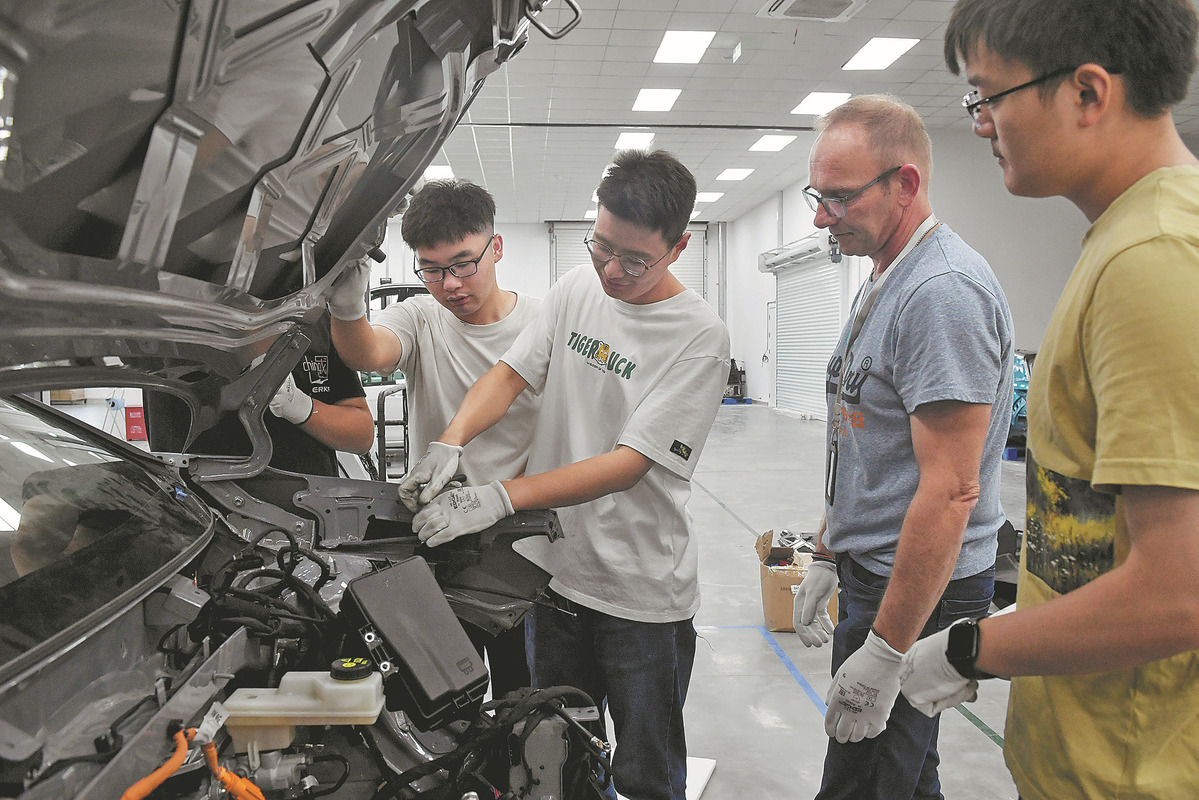China automobile market draws international interest
By LI FUSHENG and CAO YINGYING | CHINA DAILY | Updated: 2023-06-05 07:37

Foreign investments reflect confidence of global brands
International automobile manufacturers and suppliers are expanding investment in China, demonstrating their strong confidence in the world's largest vehicle market.
On Wednesday, the United States-based PPG Industries, a supplier of paints and coatings, launched its first battery pack application center in North China's coastal metropolis of Tianjin.
The $30 million facility features a full range of capabilities to test the application of PPG coatings technologies, materials and systems for electric vehicle battery packs.
"The new application center is an important milestone in our effort to support our customers in China in the EV battery market," said Vincent Robin, PPG's global vice-president of automotive coatings.
"The new facility provides a means for them to validate our customizable coatings solutions that help reduce application costs, increase battery life, range and charging speed, and contribute to occupant safety."
Robin said the decision to build the center in Tianjin was made because of the company's confidence in the Chinese market, which leads the world in the NEV sector.
The center includes application testing for PPG technologies, such as powder coatings, fire protection coatings, dielectric coatings, adhesives and sealants, surface pre-treatment and e-coat technologies. Its modular design allows independent projects in each of the applications to be implemented concurrently — a flexibility that enables development of material and process solutions across the range of current and potential customers.
Meanwhile, German auto giant Volkswagen recently announced plans to invest an additional 23.1 billion yuan ($3.3 billion) in Hefei, capital of East China's Anhui province, through its Volkswagen Anhui Automobile joint venture.
A total of 14.1 billion yuan will be allocated to the first phase of constructing a production base and toward fixed assets for a research and development center, while 9.05 billion yuan will be dedicated to the R&D of new models.
Volkswagen Anhui, in which the German company holds a 75 percent stake, was founded in 2017 and plays a pivotal role in Volkswagen's NEV era endeavors. This is particularly significant as China's NEV development has risen to a prominent position on the global stage.
Erwin Gabardi, CEO of Volkswagen Anhui, said unlike Volkswagen's two other joint ventures in China — FAW-Volkswagen and SAIC Volkswagen — Volkswagen Anhui is exclusively focused on the R&D and manufacturing of NEVs.
The joint venture also places a strong emphasis on connected technologies, such as those utilized for information entertainment systems and autonomous driving.
Data from the China Association of Automobile Manufacturers show the production and sales of NEVs were 2.29 million and 2.22 million respectively in the first four months of this year, both surging 42.8 percent year-on-year.
"The speed of our growth in this market is crucial for pushing forward our 'In China, for China' strategy to address market-defining trends at an early stage and significantly increase the pace of innovation," said Ralf Brandstaetter, chairman and CEO of Volkswagen Group China.
He also emphasized the importance of a competitive advantage in the Chinese market, stating that winning here will spur success in other markets.
Brandstaetter said Volkswagen's "In China for China" approach is yielding impressive results. Last year, 143,100 all-electric ID family vehicles were sold in the country, up 102.9 percent year-on-year.
In late May, another German automaker, BMW, announced an investment of 10 billion yuan in Shenyang in Northeast China's Liaoning province.
The carmaker will build a battery plant for next-generation Neue Klasse vehicles that will be locally produced starting in 2026, showcasing its commitment to the Chinese market.
To further prepare for local production of the Neue Klasse vehicles, an extension of BMW's Shenyang R&D Center has opened. The expanded facilities are expected to further boost the company's e-mobility development and validation capabilities in China.
The plants in Shenyang have developed into the BMW Group's largest production site worldwide, and the flurry of recent announcements underlines the company's confidence in the Chinese market and its commitment to a win-win future with local partners.
Milan Nedeljkovic, a member of the board of management of BMW, said the Chinese market is "strong, dynamic and resilient and offers significant opportunity for investment from foreign companies, which is a win-win situation for both China and the investors."
























